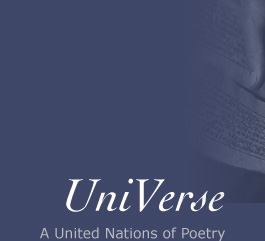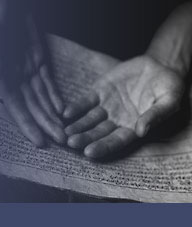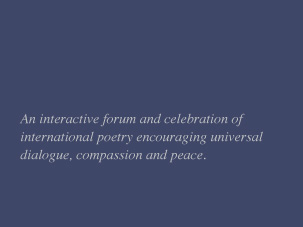| |
 |
 |
 |
Eavan Boland was born in Dublin, Ireland, and educated in London, New York, and Dublin. She has taught at Trinity College, University College Dublin, and Bowdoin College, and was a member of the International Writing Program at the University of Iowa. She has been Hurst Professor at Washington University, St. Louis.
Her books of poetry include Against Love Poetry (W.W. Norton & Co., 2001), which was a New York Times notable book of 2001. Also, The
Lost Land (1998), An Origin Like Water: Collected Poems
1967-1987 (1996), In a Time of Violence (1994), Outside
History: Selected Poems 1980-1990 (1990), The Journey
and Other Poems (1986), Night Feed (1982), and In
Her Own Image (1980). In addition to her books of poetry, Boland is also the author of Object
Lessons: The Life of the Woman and the Poet in Our Time (W. W. Norton, 1995), a volume of prose, and co-editor of The
Making of a Poem: A Norton Anthology of Poetic Forms (with Mark Strand; W. W. Norton & Co., 2000). She published a volume of translations called “After
Every War” with Princeton University Press in 2004. A new volume of poetry –“Domestic
Violence” – was published with W.W. Norton and Carcanet Press (UK) in Spring 2007. She is currently co-editing The
Making of a Sonnet:A Norton Anthology with Edward Hirsch, which will be published in Spring 2008. She is editor of a new book, in a series called “Writers on Writing,” called “Irish Writers on Writing,” published in Spring 2007. In January 2008 W.W.Norton is publishing her New
Collected Poems.
Her awards include a Lannan Foundation Award in Poetry and an American Ireland Fund Literary Award; the Corrington Medal for Literary Excellence, Centenary College, 2002; Bucknell Medal of Distinction, 2000, Bucknell University; the Smartt Family prize from the Yale Review; the John Frederick Nims Award from Poetry Magazine, 2002; and The James Boatwright III prize from Shenandoah, 2007. She has honorary doctorates from University College Dublin, Trinity College Dublin, Strathclyde University Scotland, and Bowdoin College and Colby College, both in Maine. She is the Bella Mabury and Eloise Mabury Knapp Professor in Humanities at Stanford University and Melvin and Bill Lane Professor for Director of the Creative Writing Program.
|
 |
 |
| That the Science of Cartography is Limited |
English |
 |
|
 |
|
English
version
That the Science of Cartography is Limited
-and not simply by the fact that this shading of
forest cannot show the fragrance of balsam,
the gloom of cypresses
is what I wish to prove.
When you and I were first in love we drove
to the borders of Connacht
and entered a wood there.
Look down you said: this was once a famine road.
I looked down at ivy and the scutch grass
rough-cast stone had
disappeared into as you told me
in the second winter of their ordeal, in
1847, when the crop had failed twice,
Relief Committees gave
the starving Irish such roads to build.
Where they died, there the road ended
and ends still and when I take down
the map of this island, it is never so
I can say here is
the masterful, the apt rendering of
the spherical as flat, nor
an ingenious design which persuades a curve
into a plane,
but to tell myself again that
the line which says woodland and cries hunger
and gives out among sweet pine and cypress,
and finds no horizon
will not be there. |
 |
 |
English
version
Quarantine
In the worst hour of the worst season
of the worst year of a whole people
a man set out from the workhouse with his wife.
He was walking—they were both walking—north.
She was sick with famine fever and could not keep up.
He lifted her and put her on his back.
He walked like that west and north.
Until at nightfall under freezing stars they arrived.
In the morning they were both found dead.
Of cold. Of hunger. Of the toxins of a whole history.
But her feet were held against his breastbone.
The last heat of his flesh was his last gift to her.
Let no love poem ever come to this threshold.
There is no place here for the inexact
praise of the easy graces and sensuality of the body.
There is only time for this merciless inventory:
Their death together in the winter of 1847.
Also what they suffered. How they lived.
And what there is between a man and a woman.
And in which darkness it can best be proved. |
 |
 |
English
version
The Pomegranate
The only legend I have ever loved is
the story of a daughter lost in hell.
And found and rescued there.
Love and blackmail are the gist of it.
Ceres and Persephone the names.
And the best thing about the legend is
I can enter it anywhere. And have.
As a child in exile in
a city of fogs and strange consonants,
I read it first and at first I was
an exiled child in the crackling dusk of
the underworld, the stars blighted. Later
I walked out in a summer twilight
searching for my daughter at bed-time.
When she came running I was ready
to make any bargain to keep her.
I carried her back past whitebeams
and wasps and honey-scented buddleias.
But I was Ceres then and I knew
winter was in store for every leaf
on every tree on that road.
Was inescapable for each one we passed.
And for me.
It is winter
and the stars are hidden.
I climb the stairs and stand where I can see
my child asleep beside her teen magazines,
her can of Coke, her plate of uncut fruit.
The pomegranate! How did I forget it?
She could have come home and been safe
and ended the story and all
our heart-broken searching but she reached
out a hand and plucked a pomegranate.
She put out her hand and pulled down
the French sound for apple and
the noise of stone and the proof
that even in the place of death,
at the heart of legend, in the midst
of rocks full of unshed tears
ready to be diamonds by the time
the story was told, a child can be
hungry. I could warn her. There is still a chance.
The rain is cold. The road is flint-coloured.
The suburb has cars and cable television.
The veiled stars are above ground.
It is another world. But what else
can a mother give her daughter but such
beautiful rifts in time?
If I defer the grief I will diminish the gift.
The legend will be hers as well as mine.
She will enter it. As I have.
She will wake up. She will hold
the papery flushed skin in her hand.
And to her lips. I will say nothing. |
 |
 |
|
 |
|





